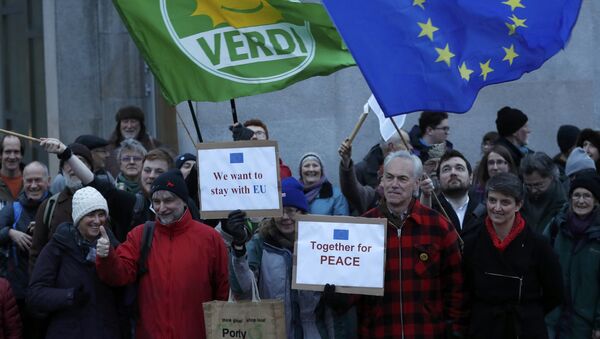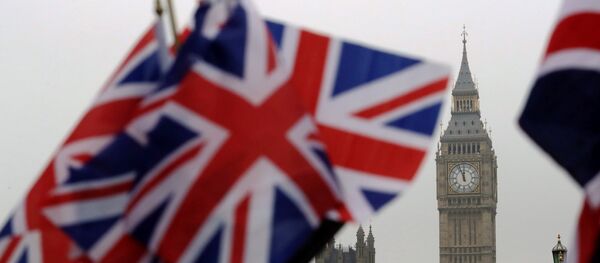MOSCOW (Sputnik) — On Monday, Scottish First Minister Nicola Sturgeon said that she would seek the authority to hold another independence referendum between fall 2018 and spring 2019. According to the first minister, these dates are to accommodate for Brexit negotiations.
The ScotCen poll showed that support for independence has been steadily growing since from 23 percent in 2012 to 46 percent in 2016. As for overall skepticism toward the European Union, the poll showed that this year's figures contrast sharply with those recorded in 1999, when only 40 percent of Scottish citizens voiced their such sentiment.
The percentage of people who believe that the Scottish parliament should be making all decisions for Scotland dropped slightly from 51 percent in 2015 to 49 in 2016. The number of those who think that Scotland should make all decisions, save those relating to defense and foreign affairs, grew by 1 percent since 2015 to 31 percent in 2016.
The survey also found that 25 percent of the Scots would like to leave the European Union, which is a drastic increase compared to 17 percent in 2015. An opposite trend could be seen in the case of those who wanted not only to remain but for Brussels' powers to increase as their percentage has dramatically decreased from 11 percent in 2015 to 5 in 2016.
The percentage of those who wanted to stay but somehow reduce the bloc's powers has fluctuated slightly, moving from 43 percent in 2015 to 42 percent in 2016. Meanwhile, last year, 21 percent wanted to the status quo to remain as is, which was a 1 percent increase from 2015.
The survey also showed that 42 percent of Scots in 2016 backed devolution, while 8 percent believed there was no need for a Scottish parliament.
ScotCen is a Scottish branch of NatCen Social Research, an independent research center.
In 2014, Scotland voted to remain part of the United Kingdom by 55.3 percent against 44.7, however, the 2016 Brexit vote showed that Scotland differed from England on the European Union membership, as it backed staying with the bloc by 62 percent against 38 percent.






